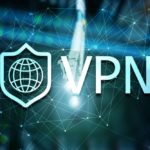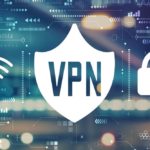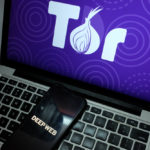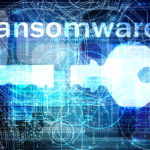by Reese Kimmons, MS ISA
Most of us would simply download a virtual private network (VPN) application without giving it a second thought. As it turns out, however, whether it is legal or permissible to use a VPN is a question posed quite frequently in Google queries.
The primary reason is that the governments of some nations impose greater restrictions on individual freedoms than others and do not approve of the use of applications that allow their citizens to peruse the Internet while taking advantage of the anonymity, encryption, and location masking functionality that VPNs provide.
Some streaming services also prohibit their subscribers from using VPNs when connecting with their sites because they can be used to circumvent access restrictions.
So are VPNs legal? The answer is, it depends.
VPN Overview and How They Work

When you visit a website while using a VPN, the VPN establishes a secure tunnel between your device and that website. The VPN encrypts all data traveling through the tunnel to and from the site so that, even if it is somehow intercepted by a hacker, it cannot be unencrypted and read.
VPNs also mask your identity and physical location. When you go online, your activities are tracked and attributed to you by the IP address of your device. When you start a VPN app, it connects with one of many servers on the VPN provider’s network. Once that connection is made, your device IP is hidden and you begin using an IP address assigned by the VPN server.
Because quality VPN providers have extensive networks of servers around the world, the VPN address assigned to your device upon connection will change frequently, as will the location of the server providing the IP. This leaves Internet trackers unable to pin down your physical location or verify your identity.
The location masking functionality provided by VPNs is of special interest to many who live in countries where their access to certain sites is being blocked by their governments. Blocking is accomplished by preventing all devices using “local” IP addresses from accessing the restricted sites.
Using a VPN, you can acquire an IP address issued by a VPN server outside of the blocked area and regain access to those sites. Some VPN users also take advantage of this capability to access streaming services and other sites that have implemented their own geographical restrictions
The Legality of VPN Usage By Country

As stated, there are nations that place significant restrictions on individual freedoms and prohibit the use of VPNs altogether because of the encryption and anonymity they provide.
Some block access to certain online resources that may be accessible through the use of a VPN. Still others monitor the online activities of their citizenry, which is made very difficult when those citizens are utilizing VPNs.
Following is information about the legality of VPN usage, the freedom of citizens to access Internet resources, and the monitoring activities of 37 nations listed alphabetically:
Australia
VPN usage is legal and is growing in popularity due to the blocking of access to certain sites such as those offering torrenting services and as a result of requirements for telecom companies to log user data including information about their email and location.
Austria
VPN usage is permitted in this country, the constitution of which includes provisions guaranteeing its citizens the right to free speech and freedom of the press.
Belgium
VPN use is allowed, but there have been some recent cases relating to censorship of Internet content.
Brazil
Like Belgium, use of VPNs is legal but there have been cases of censorship. The Brazilian government has also made previous attempts to pass legislation restricting Internet content.
Canada
While VPN use is currently legal, the government has previously considered outlawing them. Canada also has some intrusive requirements relating to data retention and surveillance of its citizens.
China
China blocks many popular websites including Facebook, Google, and YouTube. These and other government restrictions collectively known as the “Great Firewall” have led to a significant increase in the popularity of VPNs. In response, the Chinese government has implemented tactics to identify and block VPN traffic. The government has also had VPN apps removed from the Chinese Apple App Store and has even had providers of VPN services arrested and convicted of crimes. VPN usage isn’t illegal (yet), but it is certainly discouraged.
Denmark
VPN use is unrestricted for now, but the government is allowed to enact censorship of Internet resources and has, in the past, blocked sites including Google and Facebook, reportedly “by mistake.”
Egypt
You can legally use a VPN in Egypt, but the country has a history of imposing restrictions on its press and, more recently, blocking VoIP services offered by FaceTime and Skype.
Finland
This country has, in the past, attempted to censor some Internet content, but VPN use is permitted.
France
For the stated purpose of thwarting terrorist attacks and other crimes, the French government has given itself the authority to “actively monitor” Internet traffic. France has recently blocked access to thousands of sites based on their content. Notwithstanding its own tracking of the citizenry’s Internet usage, France takes a strong stand when it comes to prohibiting others from doing the same, recently fining Facebook for tracking French users and gathering their data. The use of VPNs in France is legal.
Germany
The German government has taken some hits from its citizens when making previous attempts to censor social media usage. VPN use is legal and, given the propensity of its citizenry to protest the restriction of their online activities, any attempt to change that will likely be met with strong opposition.
Greece
Reports have indicated that the Greek government is considering imposing censorship via the blocking of certain websites, but VPN usage is permitted.
Hong Kong
The situation is volatile here, but, at last word, you could still use a VPN in Hong Kong and Internet access remained relatively uncensored.
Hungary
The Hungarian government has implemented various types of censorship in the past and has even tried to ban the use of end-to-end data encryption, but you can legally use a VPN there.
Iceland
This country makes it a practice to avoid restricting access to online resources. VPN usage is legal.
India
You can legally use a VPN here, but you may find that the site you want to visit has been taken offline by the Indian government using its power to enact information blackouts. These are often imposed in response to public unrest and protests.
Ireland
VPN usage is allowed, but there is some censorship in place that blocks access to certain online content.
Israel
Anti-terrorism and anti-crime laws here allow the government to block certain websites and social media content, but VPN use is legal.
Italy
VPN usage is permitted and Italians’ access to Internet resources is unrestricted.
Japan
There are currently very few restrictions on access to online content and VPN usage is legal, but some expect that to change in the future with the imposition of new laws.
Kuwait
VPN usage is legal, but there is some censorship in place including a new law relating to cybercrime that some say places restrictions on citizens’ freedom of expression.
Lithuania
This country’s citizens generally have the freedom to peruse the Internet at will and to use VPNs, but the country has imposed some restrictions on certain sites including those that offer online gambling.
Mexico
For now, Mexicans are allowed to use VPNs and to move freely about the Internet, but some are predicting that new online surveillance laws will be enacted in the not-too-distant future.
Morocco
While this country has banned some popular methods of communicating online including Facebook Messenger and Skype, you can still use a VPN there.
Netherlands
This is another country where there are no restrictions on Internet usage. VPNs are legal.
New Zealand
You can use a VPN here, but your online activities may be monitored by the government. It’s unclear, however, how much information the government can actually gather about those using VPNs.
North Korea
As you might expect, the restrictions imposed by this government are too numerous to list here. They include denying access to the Internet. North Koreans can only access the country’s national intranet known as Kwangmyong and are blocked from numerous social media sites. The country’s diplomats are prohibited from accessing the Internet even when they travel abroad. If you’re visiting there, you are allowed to browse the real Internet, but only if you use 3G. Visitors are prohibited from using a VPN, but it’s unclear whether the prohibition also applies to citizens. Even if a citizen tried to use a VPN, it’s unlikely that he or she would be able to connect to a VPN server.
Norway
Norwegians enjoy the online freedom to browse at will and to use VPNs as they wish.
Pakistan
Citizens are often blocked from visiting certain sites at least temporarily, including Quora and YouTube. The government also filters a great deal of other Internet content. VPNs are, however, still legal.
Russia
Since 2017, VPN usage has been banned here. If you’re caught using one, both you and your VPN provider could face hefty fines. The VPN ban was supposedly enacted to block the spread of extremism, but VPN traffic could still get through. For that reason, in 2019, the Russian government went after VPN providers who were still operating servers within the country. Providers including the popular NordVPN were forced to shut down operations there.
South Africa
Use of VPNs is permitted here and Internet access restrictions are light.
South Korea
Unlike its neighbor to the north, South Korea allows VPN use. There are, however, censorship practices in place that block access to any materials the government deems to be subversive or damaging to public order.
Switzerland
Despite its reputation for having some of the strictest laws in the world to protect personal privacy, Switzerland has some restrictive Internet usage laws and recently began censoring content that could be damaging to its domestic gambling operations. VPN usage is still legal.
Taiwan
You can use a VPN here and, at least for now, your access to Internet resources remains unrestricted. There has been talk of blocking certain sites, but the move to do so failed.
Thailand
If you’re a blogger here, you could be jailed for posting the wrong kind of information. Internet service providers in Thailand have been known to block certain websites. Still, you can use a VPN.
United Kingdom
A law called the “Investigatory Powers Act” facilitates the government’s monitoring of any online activities they want to monitor. VPN service providers are also required to maintain data on their users should the government need it. Some VPN providers have been blocked by the U.K. government. VPN usage remains legal.
United States
You can use a VPN in the U.S. and roam freely about the Internet, but monitoring of Internet activities by federal agencies has become more prevalent in recent times. The repeal of certain online privacy statutes also now allows for the monitoring of ISPs.
If the country you’re interested in learning about isn’t among those listed here, you should be able to find the information you need by searching “is VPN usage legal in <name of country>.”
Other FAQs Regarding VPNs
Can you stream content using a VPN?
People often ask Google whether it’s legal to stream content while using a VPN. Assuming you’re in a country that doesn’t restrict VPN usage, the answer is yes, but it may violate the streaming company’s terms of use.
For example, services like Netflix, Prime, Hulu, and others restrict access to their streaming content according to the geographical locations of their users. This means that, if you’re not in the right area, you may not have access to the movie you want to watch.
You might be able to get around this by connecting to a VPN server in an area from which access to that content is allowed, just as you might do if you were in a country where the government was blocking certain sites. If you’re caught accessing a streaming service using this method, you will not be charged with a crime. You may, however, lose your access to that particular streaming service, although this is unlikely.
Can you get past YouTube viewing restrictions with a VPN?
Many want to know specifically whether you can use a VPN to get past some YouTube TV viewing restrictions. Again, as with other streaming providers, the answer is yes, but there may be consequences if you’re caught.
YouTube TV is only available to those with IP addresses within the United States. VPN users in other countries can connect to U.S.-based VPN servers and get past this restriction. Some have also used VPNs to circumvent YouTube’s age verification process. There is no need to go into detail about how this was done because it seems that YouTube has applied a fix that blocks this activity.
YouTube has also created an algorithm to identify those connecting to its TV service via VPN in an attempt to access content from a blocked area. The algorithm works by identifying IP addresses that are being used by multiple devices simultaneously.
If you subscribe to a VPN service that does not provide each of its users with a dedicated, unique IP address and if you try to connect using the same IP address as another VPN subscriber who is also logged into YouTube, your access will likely be blocked and the IP address will be tagged as that of a VPN server. For now, at least, you can get past this restriction by switching to a VPN provider that supplies each user with a unique IP address.
Can you use a VPN at work?

Some are curious as to whether they can use a VPN at work while connected to their employer’s network. The answer would depend on your employer’s policies. If this is prohibited, the answer is no, you shouldn’t do it.
Additionally, more organizations are moving to whitelisting, a process whereby users of their networks are only allowed to access specific sites while using company resources. Whitelisting would most likely prevent you from connecting to your VPN provider.
Summing Up…
Virtual private network applications are valuable tools for protecting your anonymity and your data, dramatically reducing online tracking, and masking your geographical location. They can, however, get you into trouble depending on where you are and what you do with them.
Using a VPN could, although it’s unlikely, also result in your access to certain services being disabled. Be sure that you understand your local laws and that you read the terms of use for accessing services if you have any doubts about whether you should be using a VPN in a given location or situation.
About the Author:
Reese Kimmons is an experienced IT executive with an AAS in Applications Programming, a BS in IT Management and an MS in Information Security and Assurance. During his time in the IT industry, Reese has earned certifications in ethical hacking, forensics investigations, ISO/GIAC, and Cisco networking.
- How Secure is Your Car? Tips to Stop Car Key Fob Hacking - December 17, 2022
- Cybercriminals Raking in Millions with “Hi Mom” WhatsApp Scam - December 17, 2022
- EU Websites Charging Visitors to Reject Tracking Cookies: A Practice Expected to Spread - December 17, 2022





